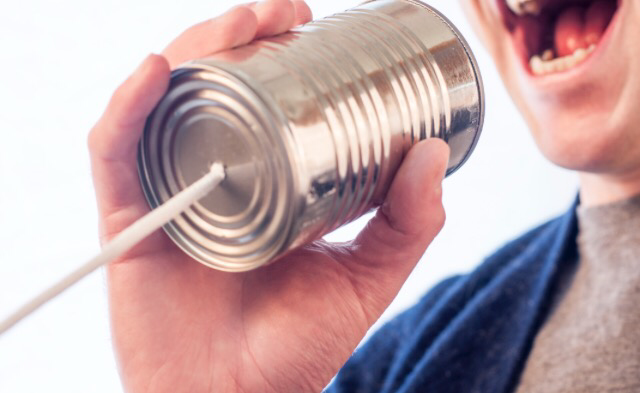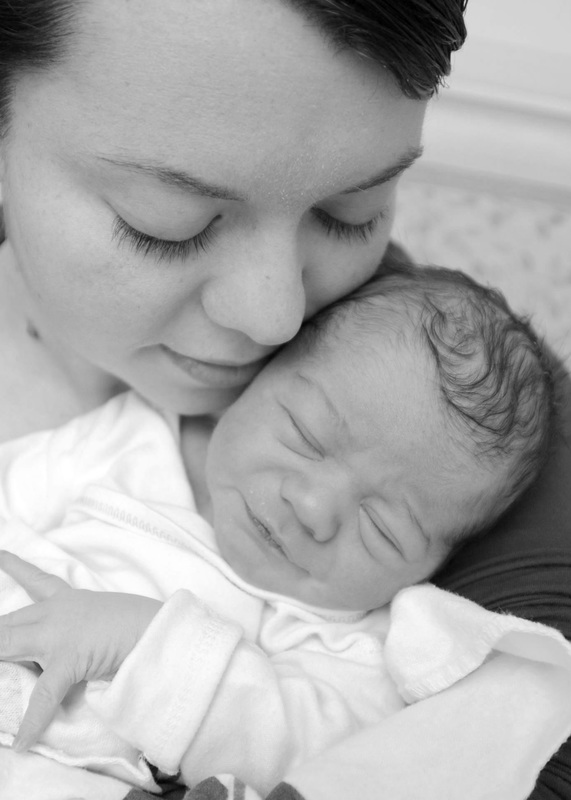|
As the clock strikes midnight and the new year is ushered in, the focus shifts from the memories of the past year to the resolutions of the new year. While the energetic motivation behind some resolutions fizzles out before Valentine's Day, some resolutions really are worth pursuing. Do you want more happiness in your life? Here are 14 resolutions that, if you follow, can bring much happiness to your family during this year. 14 resolutions that will make you happiertBe yourself
There's a reason why being yourself feels so good. It's liberating, it's effortless, and it's empowering. Hiding who you are is a lot of work and is very limiting. Embrace who you are and shine. Be intentional with your inner circle Jim Rohn puts it the best: "You are the average of the five people you spend the most time with." Surround yourself with positive, encouraging, loving, and supportive people. This is especially true for kids and their friends; children are so impressionable. Choose your friends wisely. Stand up for family and friends Honesty is more than just telling the truth. Honesty also means speaking up when a lie is spoken. If a coworker makes fun of another coworker, say something. Teach your children to do the same in the school cafeteria. Living a life untethered from gossip will make you much happier. Volunteer Research tells us that volunteering has a direct impact on our happiness levels. A study from the London School of Economics demonstrated that the more people volunteer, the happier they are. Rest Sleep is essential for the human body to function properly. While many people get away with a slightly less-than-optimal amount of sleep, it is important to note that proper sleep affects your happiness level. Why? Matthew Berkeley, a scientist from UC Berkeley, reported that poor sleep quantity and quality causes the emotional systems in the brain to "run amok." Doesn't sound like an optimal environment for happy thoughts! Eat well As more awareness is being spread about the dangers of processed foods, more and more studies are revealing how food can contribute to happiness. Dr. Joe Hibbeln conducted a study and found a link between fat in the diet and emotional health. When diets are based on processed foods, the brain is denied healthy fats like Omega 3 Fatty Acids, which are essential for brain health. Eating a diet rich in organic produce, lean meats, whole grains, and health fats ensures that the body can work to the best of its ability, and that includes the brain health too! Cultivate your unique gifts This is similar to the first resolution (be yourself), but this resolution requires you to act on it. Why will this make you happier? By fostering hobbies, you will feel satisfied (and thus happier) by witnessing you grow in your own gifts. Use respectful language While this seems like just plain old manners, it's easy to lose track of respectful language. A driver cuts you off and you yell at him. Sound familiar? We then get angry at this driver and spend the next 10 minutes fuming. 10 minute of our life fuming at a total stranger. Use respectful language in all you do. Don't waste your precious moments on degrading or disrespectful language - even if the offender cannot hear you. Choose your battles wisely When I was younger, my dad would say "I'm not gonna die on that battlefield." I didn't get it at first, but he meant that he knew when to pick his battles. In doing so, we saved himself the stress (annoyance, energy) by not arguing with me. Whether you are 10 or 90, this is good advice. If you battle all the time, you will have no energy left to be happy. Never stop learning Read! Attend seminars. Watch a documentary. Keep your brain challenged. Participate in hard work Why does hard work make you happier? BBC published an article on the effects of hard work on happiness. Swedish researchers from Gothenburg University demonstrated that hard work is good for emotional health because it is the actual process of working towards a goal that makes people more satisified than the actual reaching of the goal. Emotional highs (without working) dissipated much quicker than emotional highs that followed a period of hard work. Control your emotions With emotions running unchecked, it can be hard to experience the joy in your life. Emotions are part of life; we all experience an incredible range of emotions, but that doesn't mean that we are defined by those emotions nor does it mean that those emotions control us. The first step to controlling your emotions is acknowledging them. Once you are aware of your emotions, it is much easier to work through them. Practice positivity What better way to be happier than to practice positivity! Every day, make it a point to practice positivity. This could be something as simple as thinking about the highlights of your day as you snuggle into bed. Or, it could be something like keeping a daily journal of all of your positive moments. Love The best way to be happier is love. Spread love everywhere you go. This doesn't mean just rainbows and butterflies. Love isn't a feeling; it is a decision; it is to willingly act for the good of another. Love is holding a door open. Love is giving the last piece of cake to your husband. Love is reading the extra bedtime story when you just want to go to bed. Love is making your spouse's morning routine easier by making his/her lunch. Love is going the extra mile to make sure your child is comforted. There are infinite ways to show love. Love. Love alone is the key to happiness. Let everything you do be rooted in love. Are you committing to any of these resolutions? Let us know!
1 Comment
When I was a new mother, just learning the hang of breastfeeding and mothering in general, a well-intentioned stranger told me that I should just use formula to make sure that "Dad shares some of the duties." I let it slide, not knowing what to say, but later that night, I couldn't shake the comment. Her comment implied two things: that I had to do it all and that my husband was a lazy participant in our child's life. But those implications were far from true. During those early weeks of my son's life, I rarely had to change a diaper in the middle of the night. Before a middle-of-the-night feeding, my dutiful husband would wake up and change the diaper. Eventually as we adjusted to this life, the middle of the night diaper changes slowed down, but the point remains. Moms don't have to do it all, and Dads don't have to stick to the sidelines. Regardless of what parenting style you choose and how you implement those teachings, parenting is no more for the mamas than the daddies. It is a team effort. Sure, there are some things that a dad cannot do (hello, breastfeeding!), but a dad can lovingly feed a bottle (breast milk or formula) to his own baby. End gender stereotypesMy husband continues to demonstrate his dedication to being an AP (Attachment Parenting) Dad.
Don't let anyone tell you that Attachment Parenting is for the weak or the mamas. It's more than just "parenting tips" - it has transformed our life.
Gentle Parenting Myth #3: Parents who Practice Gentle Parenting Don't Have Any Time for Hobbies1/3/2017 Parenting takes effortWhether you are a helicopter parent or a free range mama, parenting is tough, tough work. Raising a child requires you to commit your time and your energy. It's easy to lose your sense of "self", to forgo some of your old hobbies, and get swept up in the consuming role of a parent. Heck, it's hard enough to drink your coffee while it's still hot! Committing to gentle parenting does not mean a bigger risk for losing personal timeThere's a myth circulating that parents who practice gentle parenting are so much more consumed with their children that they lack personal free time as well as time as a couple. The truth is, it is definitely easy to neglect other relationships, but that has nothing to do with gentle parenting. Any parent, regardless of parenting style, can lose their free time. Free time must be diligently scheduled. The key is balance. All parents must balance their role as parent and spouse and human being. It is important for a parent to foster a healthy, happy relationship with his/her spouse and friends. Children thrive in homes where they see their caregivers spending quality time together. Why parents need "me time"?Time spent doing what you love benefits not only you but your relationship with your children. Why is "me time" so important?
What do you like to do in your free time? Comment below!
Nearly every expectant mother has taken a stroll down the parenting section of a bookstore (or scrolled through it on a Kindle.) There is no shortage of parenting books. In fact, the market is pretty saturated, but there is a reason parents read about parenting strategies, methods, tips, and hacks. We all want parenting to be easier, to find some secret sauce that makes our bundles of joy ... well... joyful. So it makes sense that when we implement and diligently follow a certain method that we expect it to work. Myth #2This myth is actually the opposite of the first myth (that kids will rule the house and there will be no discipline). Myth #2 propogates the idea that if gentle parenting is so peaceful, then you should have angelic baby angels who comply at all times and never misbehave. Gentle parenting does not ensure 100% well-behaved childrenNewsflash! Children are... well... people. They are not "mini adults", but they are people. People with free will and big emotions, real feelings, and unique opinions. As such, kids who grow up are not automatically well-behaved. Why practice gentle parenting then?Gentle parenting is all about the long-term investment. You are raising the children of today, but you are also raising a man or woman of tomorrow. How they are raised now does affect who they will be tomorrow. The truth is that choosing to parent gently does not mean that your child will behave perfectly all of the time.
Yes, children will still throw tantrums and meltdown, but the point is that those tantrums are met with respect, listening, and empathy. Through the parental modeling of respect and empathy, the child learns respect and empathy. The goal of gentle parenting is not to create a perfect son or daughter. While the majority of the world models harsh responses (such as yelling) to unwanted behavior, the goal of gentle parenting is to model a response (ie. listening, etc) that can both teach and correct the child without damaging his/her emotional well-being. Have you encountered any resistance to your gentle parenting? My oldest son had just come home from a playdate with his Memaw. As my mom dropped him off, she beamed at how good he was. He was polite and chipper and chatty. They played, did arts and crafts, and went out for lunch. It was the perfect day and my boy had been angelic. So you can imagine my surprise when he started running and screaming and having a meltdown. My mom stared in disbelief and said, "Wow. He was so good today." I knew what was happening, though. I had seen it before. The dreaded I-was-good-for-other-people-but-now-I'm-gonna-meltdown-for-Mommy syndrome. What gives? I want to be greeted with kisses and hugs - not meltdowns! But here's the thing: being good is exhaustingBeing good and following the rules and listening to the adults is hard work. Exhausting work. It takes so much energy for young kids to be "on their best behavior" that when they come home, they are just over it. And my son hit the nail on the head. I set him on his bed, thinking that some quiet time with a book or a cuddle could recharge his mood. I asked him, "What's wrong? Why did you spiral out of control?" His answer made my jaw drop: "I'm all behaved out. Being good was hard work and I'm really tired." Of course, it was. So I tucked my little guy in and he got some very needed rest. Three things to know about why kids reserve their worst behavior for usIf, at first, it hurts yours feelings that your son or daughter saves all their best behavior for others and then unleashes the dragon on you, fear not. Here's some helpful info to remember.
Does your child behave well for others and save the crazy stuff for you? What do you do? How do you make the transition easier for your child? When people learn that we have ditched timeouts, one of the most frequent responses goes something like this: "Well, how do you expect them to listen to you?" or, "He's going to walk all over you, he's going to be out of control." I am here to tell you that this is a frequent myth that is connected to gentle parenting. There is a heavily circulated myth that supports the idea that unless child are punished severely (spanking, timeouts, etc) that they will not learn the lesson. That, my friends, is a myth. Gentle parenting does not mean lax discipline. I repeat: gentle parenting does not mean lax discipline. Sure, spanking and timeouts can be effective. Of course, they work. Who wouldn't want to comply in order to avoid being spanked? Spanking works, but that doesn't make it right. So, what can a parent do to discipline their child in a gentle yet effective way? (Fun fact: discipline means "to teach") Effective alternatives to time outs and spankingTime in
Instead of having a time "out" to calm down, try a time "in" where the child is not separated from the rest of the family. This is helpful because a child can calm down without feeling ostracized from the family. Talking Many, many tantrums have escalated due to misunderstandings. Tantrums get even more out of hand if I join in the chaos with yelling and craziness. If I lose my temper, then there is no way to solve the problem peacefully or easily. If I make it a point to to have a conversation and ask bluntly specific questions (Why did you take your brother's milk?), I usually can figure out why my child did X, Y, or Z behavior. Learning the why often leads to a good opportunity to have a conversation about the proper behaviors with our child. Of course, this doesn't always work and it definitely doesn't work so great with toddlers, but it's good to keep in your parenting toolbox. Redirection This is a great option for younger children, especially toddlers. Remove the temptation from them and save yourself the sanity too! Consequences that "fit" I want to use disciplinary methods that my child can actually learn from. For example, if my son dumps his milk on the floor, I do not send him to time out. Instead, he must clean it up. I teach him to grab a cleaning rag, how to wipe it, and what to do with his rag afterwards. This consequence will actually teach him, rather then just punish him. Hug it out Nurturing touch, one of the principles of Attachment Parenting, plays a huge role in the peacefulness of a home. Sometimes, a child's behavior starts to spiral out of control when his/her love cup is running low. A simple hug can go a long way to improving a child's behavior. What are some effective gentle discipline methods that you have used? Comment below! Who doesn't love being happy? People seek happiness in all that they do. Sometimes they find happiness in all the right places, and sometimes, sadly, people waste time looking for happiness in all the wrong places. One surprising font of happiness is the iconic family tradition. It's not so much what the tradition is, but rather just the fact that it is a family tradition. The science behind why this works: The Association of Psychological Science published an article called Waiting for Merlot: Anticipatory Consumption of Experiential and Material Purchases. The study revealed that material purchases offer far less joy than experienced purchases. So, that means a vacation or a day spent zip-lining offers more lasting joy than a day spent shopping for material goods. The experiences make us happier than the goods. Why? It's all about the lead up. As our brains process waiting for an experience, we are generally happy and excited. The brain does not process the waiting period for a material possession with the same depth of feeling. Plain and simple: experiences make us happier and that happiness is far more lasting than the excitement of material item. So, what does this have to do with family traditions? What are family traditions if not an experience? Family traditions create joy because they are an experience. 4 ways family traditions contribute to familial happiness
Family traditions we love Every family has their own traditions, but here are a few of my favorite.
While "attachment parenting" has become somewhat of a buzzword, Attachment Parenting is actually a movement that was founded almost seventeen years ago. What is Attachment Parenting?Attachment Parenting is a movement that advocates for and supports a strong, secure attachment between a caregiver and child. Attachment refers to the emotional bond between parent and child. Why is this attachment so important? The way a child attaches to his/her caregiver affects the way s/he will shape all future relationships. How does a secure attachment affect a child?Reseach shows that children with secure relationships with their parents are:
What are 8 principles of attachment parenting?Attachment Parenting garners its strength from eight scientifically-supported principles. More than just principles, these are tools that help guide parents in their parenting journey.
While Attachment Parenting is typically geared towards infants and young children, the theories behind Attachment Parenting benefit all relationships. Whether you are just starting your journey with Attachment Parenting or you have been applying these theories for years, it never hurts to have a little refresher on how to apply each principle to your own unqiue parenting journey. Some of my most memorable childhood moments were connected to family Christmas traditions. I think part of the happy associations is that there was such a joy around the holidays in my home. So much joy I could taste it. So much joy.
As a mother, I can now appreciate how much effort goes into holidays in order to make them so magical for children. Here's a list of ways to infuse some extra joy into your holiday season. Bake cookies Baking Christmas cookies is a classic holiday tradition, but for good reason. Not only do you get yummy treats, but the process is worth more than any cookie. It reminds me of the quote, "The journey is just as important as the destination." Let your children set the pace, blast the Christmas tunes, and enjoy the time spent in together. Extra points if you make batches of cookies for friends and neighbors Spread cheer Love and joy are two things that cannot be depleted by giving it away. In fact, it's the opposite. The more love and joy you share, the more you get in return. Choose a cause and spread cheer.
Have a wrapping party Involving your kids not only provides a fun activity but also helps to teach the importance of giving. It's okay if their presents aren't wrapped Pinterest-perfect. A gift wrapped with love is the best kind. Hot Cocoa Nothing screams winter joy quite like a cup of warm hot cocoa. Making cocoa from scratch is just another excuse to spend some quality time in the kitchen. Try these recipes:
Get outside There's nothing quite as magical as a walk through the snowy woods, but if woods aren't your thing, try a skating rink, ski slopes, or good old fashioned sledding. Research continues to show how important the great outdoors is for kids' mental, emotional, and physical health. How do you bring joy to your holidays? Comment below, we'd love to hear from you! Our kids hear our voices a lot. In fact, they've been hearing it since 18 weeks in the womb (babies can actually hear sounds while in the womb...amazing!) However, not everything we say is nice and pretty and wrapped up with rainbow ribbons - sometimes we just have to get down to the business of day-to-day life.
Put your coat on. Stop hitting your brother. Eat your broccoli. Do you have to go potty? Are you thirsty? Let's go get in the car. Leave your diaper on. Time for bed. Just try to go potty. Stop throwing blocks at the window. Stop taking ornaments off the tree. Are you sure you don't have to go potty? So yeah... our days can be filled with necessary conversations. We need to talk about potty, food, and house rules, but children need more than that. They need meaningful conversations that can further strengthen your bond with them. Specificially, your child needs to hear these eight things from you. I love you It goes without saying that you love your child. Apart from showing love, your child also needs to hear the words. I love you. Why? Hearing the words helps to reinforce to your child that they are loved unconditionally, independent of their own successes, failures, and merits. It lets them know you love them no matter what. Yes, actions are incredible indicators of what we really feel, but for children, especially little ones, those precious three words gives them something to hold onto when they need comfort or encouragement. Studies show that teenagers who grow up not hearing those words from their parents are more likely to have self-esteem issues and/or equate being loved with performance. I'm sorry When one sibling hits another, what do most parents do? Somewhere in their discliplining is ususally a requirement to apologize to their sibling. We do that because it so important to teach young ones how to act after hurting another person. Modeling that behavior can be difficult. If we hurt our children (i.e. loosing temper and yelling), we need to model what we want to see. Admitting we as parents were wrong is never easy, but children benefit from hearing "I'm sorry." Not only does that help mend your own relationship, but it teaches children that it's okay to make mistakes but mending a relationship starts with a sincere apology. Please forgive me Along with "I'm sorry" letting your children hear you ask for forgiveness teaches positive interpersonal behaviors. Asking for forgiveness is not easy; even many grown adults struggle with it, but teach your kids early that pride is not more important than mending a relationship. Try Again Kids learn through repetition, but they can get easily discouraged. Encourage your child by cheering them to try again. Whether it's learning to tie shoes, or bake a cake from scratch, or build a house of cards, let them know its okay to fail one, two, or seven times. Please No one likes to be bossed around. The way we speak to our children is the way they learn to speak... regardless of how we teach them to speak. They do, what we do. Thank you For the exact same reason we should say please, "thank you" teaches them how to speak to others. It also shows them respect. Plain and simple. What do you think about _____________? There's no better way to get inside a child's mind then to ask them direct questions. A while ago, my older son was acting strange. He was mostly acting out and acting a little aggressive towards his brother. My first instinct was to get angry and label him as being naughty. But I paused for a moment, and in a calm voice, I said, "Hey buddy. What's wrong?" At first he resisted the conversation and kept struggling. But he eventually opened up and told me that he was sad. We got to the bottom of the problem, but I never would have known about it had I not just asked. Let's do [favorite activity] together! To a child, no gift is more precious than time spent together. How many times has your son or daughter begged, "Daddy, come play catch!" or "Mom, look at this tower I built." I know I personally get swept up in the day-to-day duties of motherhood and homemaking. I know I utter those words "in a minute" way too many times. I try consciously to do more of their favorite activities with them, and when I do I see a remarkable boost in their mood and behavior. Resist the urge to clean or work or read emails or check Facebook one too many times. Give in and enjoy those moments together. Let that be a Christmas gift to your child this year - the gift of time. |
About KatieWife & Mama with a passion for peaceful parenting, natural living, homeschooling... and my daily café au lait. Archives
July 2020
Categories
All
|











